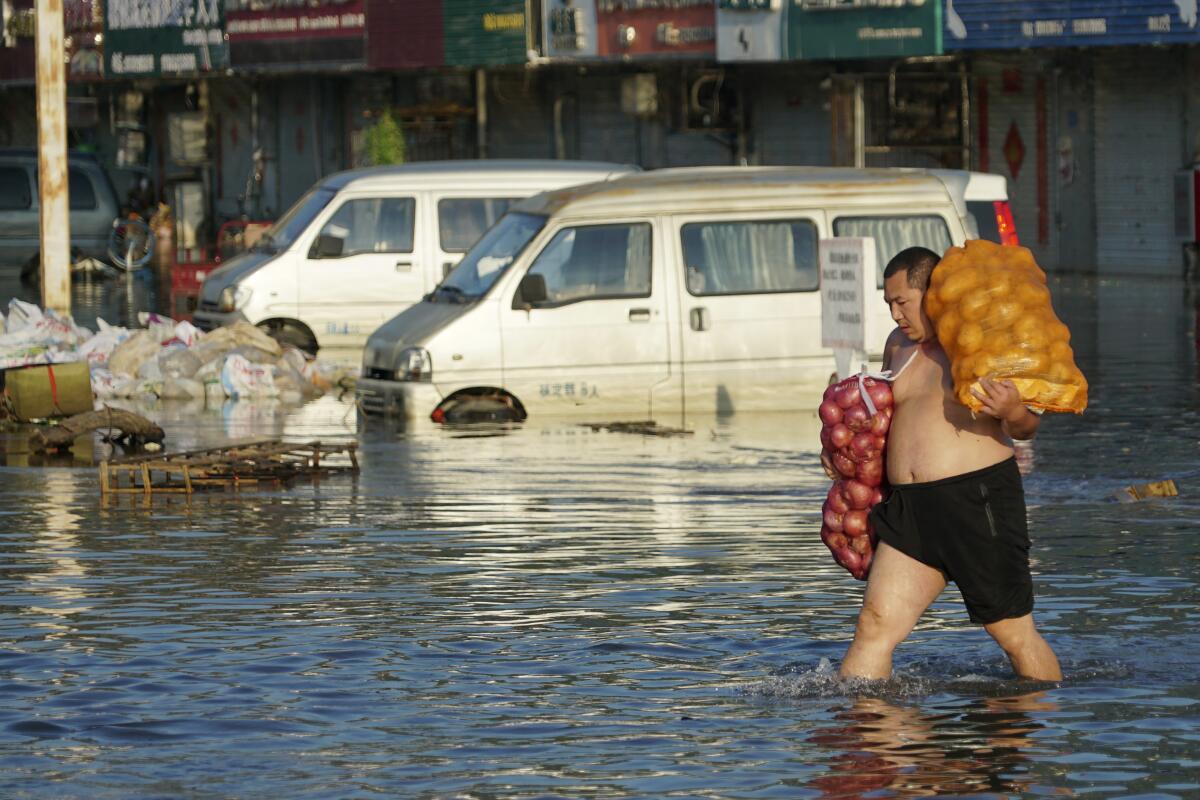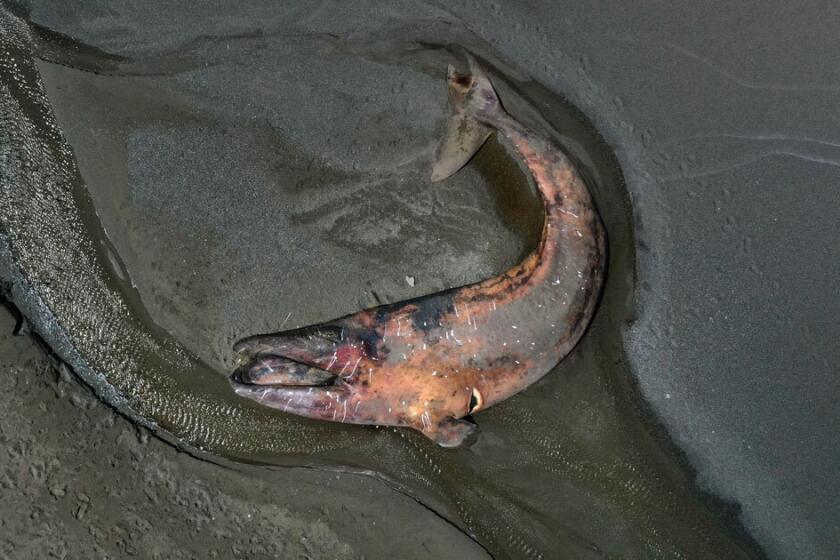Biden climate envoy demands global action after devastating U.N. climate change report

WASHINGTON — Hours after the United Nations issued a dire climate report Monday — saying a rise in global temperatures ensured deadlier heat waves, water shortages, wildfires and floods over the next 30 years — the Biden administration called on the world’s leaders gathering at the U.N. climate summit in Scotland this November to take immediate action.
“These extreme events will only become more drastic in the future — this is why we cannot wait,” U.S. climate envoy John F. Kerry tweeted. “Now is the time for action and Glasgow must be a turning point in this crisis.”
The scientific report, which was released by the Intergovernmental Panel on Climate Change, or IPCC, found that even if nations impose the strictest cuts to atmosphere-warming greenhouse gas emissions today, global warming is likely within the next two decades to surpass 1.5 degrees Celsius — the more ambitious limit targeted in the 2015 Paris climate agreement.
Using the strongest language yet to describe humans’ role in the crisis, the report’s authors began their summary with the line: “It is unequivocal that human influence has warmed the atmosphere, ocean and land.” As recently as 2013, when the last report was published, the IPCC had said it was “extremely likely” that emissions from energy and industry were to blame.
“This report tells us that recent changes in the climate are widespread, rapid and intensifying, unprecedented in thousands of years,” said IPCC Vice Chair Ko Barrett, senior climate advisor for the U.S. National Oceanic and Atmospheric Administration. “The changes we experience will increase with further warming.”
The world has already warmed about 1.1 degrees Celsius, or roughly 2 degrees Fahrenheit, since the 19th century. And the consequences are evident.
Though it may not seem like much, each half a degree of warming is hugely consequential. A previous U.N. climate report that examined the effects of surpassing 1.5 degrees of warming found that an additional half a degree would expose tens of millions more people to extreme heat, cause coral reefs to “mostly disappear” and result in greater habitat loss for animals that depend on Arctic summer sea ice.
In California, the second-largest wildfire in the state’s history is currently burning, offering no reprieve from last year’s record-setting fire season. An unprecedented drought throughout the Western U.S. has forced California regulators to restrict how much water farmers can take from the largest rivers. And triple-digit temperatures are expected to roast Northern California and the Pacific Northwest later this week.
Scientists note something different this year as the world staggers through another summer of extreme weather: Wealthier countries are getting hit.
“Nothing about today’s IPCC report should come as a surprise,” a spokesman for Gov. Gavin Newsom said in a statement. “Even for those that ignored decades of dire warnings from climate scientists, there is no denying what’s right in front of us — a climate crisis.”
The window of time left to prevent even more extreme outcomes is narrowing, but there is still a glimmer of hope.
The 3,000-plus-page report from 234 scientists detailed five possible scenarios depending on how quickly nations cut their emissions.
Each of these cases is built on the prediction that the world will hit 1.5 degrees of warming in the near term, before 2040.
Under the most optimistic scenario, immediate and aggressive emission cuts would limit climate change’s effects beyond 2050. After exceeding 1.5 degrees of warming, global temperatures would likely fall back below this threshold before the end of the 21st century.
But under three other scenarios in which emissions are intermediate, high or very high, climate change would intensify throughout the remainder of the century, very likely blowing past 2 degrees Celsius (3.6 degrees Fahrenheit) of warming. Global temperatures by 2100 could be 2 to 3.5 degrees Celsius hotter than preindustrial levels under the intermediate scenario. In the worst of all cases, they could be 3 to 6 degrees Celsius higher.
Under all of the emissions reduction scenarios studied in the new report, even the most hopeful, the Arctic is likely to have all of its summer sea ice melt at least once by 2050.
With the crucial international climate negotiations coming up this fall, some world leaders said the report would cause them to try harder to cut carbon pollution. Secretary of State Antony J. Blinken called it “a stark reminder.”
“It is essential that all countries — in particular the major economies — do their part during this critical decade of the 2020s to put the world on a trajectory to keep a 1.5 degrees Celsius limit on warming within reach,” Blinken said.
Alok Sharma, the British government minister who is president of the upcoming climate negotiations in Scotland, urged leaders to do more so they could “credibly say that we have kept [the 2.7-degree limit] alive.”
Earlier this year, President Biden announced that he would double the United States’ original commitment to slashing greenhouse gas emissions, increasing its target to between 50% and 52% by 2030.
In the name of climate action, California pushed the world toward electric cars. But building enough of them is creating its own environmental crises.
Meeting this target would require sweeping changes in how Americans power their vehicles, homes and factories. The bipartisan infrastructure bill currently before Congress would be a down payment toward that effort, but most of the tens of billions of dollars in new spending would go to bridge and road projects. Though there is funding to help communities adapt to climate change, there’s little money to fight it.
Instead, progressives and environmental activists are hoping the president’s more ambitious proposals to curb greenhouse gas emissions can be included in a separate bill that would be fast-tracked through Congress via budget reconciliation. This process would require the support of every Democratic lawmaker, a difficult proposition when some moderates in the party represent states heavily dependent on the oil and gas industry.
More to Read
Sign up for Essential California
The most important California stories and recommendations in your inbox every morning.
You may occasionally receive promotional content from the Los Angeles Times.














